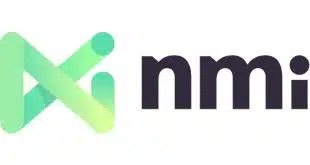Yet another banking industry vendor, NCR Corp., is entering the consumer-capture marketplace. But as the field of providers gets more crowded, financial institutions are struggling to get a decent return on technology that enables consumers to make images of and deposit checks from their homes, according to an industry analyst. NCR on Monday introduced software called NCR Aptra Consumer Passport that enables banks and credit unions to offer consumer capture through their online banking sites. Financial institutions can host the software themselves or get it through NCR on a software-as-a-service basis. The program enables consumers using so-called TWAIN-based flatbed scanners to create images of checks they receive and upload them to their financial institutions for deposit. TWAIN is an industry standard that probably 99% of the scanners consumers use meet, according to a spokesperson for Dayton, Ohio-based NCR. Consumers whose bank or credit union deploys Consumer Passport on their online sites will see a link or menu for depositing checks. Once clicked, the application will guide the customer through a process that consists of only a few simple steps, which includes scanning the front and back of the check, according to the spokesperson. NCR is the No. 1 ATM maker as well as a provider of kiosks, other banking hardware, and software. The spokesperson says NCR's clients are now asking for consumer-capture technology. “Especially in this economy, our financial customers are looking to increase their deposit base,” he says. Consumer capture is an especially good way to serve customers far from branches, he adds, as well as those who receive only a few checks and don't want to spend the time going to a branch to deposit them. The spokesperson says NCR is “in the process of talking to a number” of financial institutions that will deploy the product, but he wouldn't identify them. He expects rollouts to happen in six to nine months. Robert Meara, banking analyst at Boston-based Celent LLC, says it's no surprise that NCR is now in the consumer-capture fold because a number of its rivals already are. “I think they were compelled to do it,” Meara says. NCR would not discuss its pricing to financial-institution clients for consumer-capture technology. But, on the retail side, Meara notes that credit unions are leading the way in deploying consumer capture, and most are giving the service away. Consumer capture reduces one advantage banks have over credit unions, which is more physical locations that accept deposits. “In comparison to most banks, [credit unions] could be considered under-branched,” he says. Any bank or credit union that tries to impose a fee for consumer capture would face stiff resistance, according to Meara. But the profitability dynamics of consumer capture's business-oriented cousin, called remote deposit capture, are “a totally different game,” he says. In a move to penetrate small businesses for remote capture, scanner maker Panini North America Inc. on Monday unveiled a $299 device, the I:Deal. The Dayton, Ohio-based company, which says the new scanner is based on research into the needs of small-business owners, announced that NCR has agreed to adopt the machine, along with Wausau Financial Systems Inc., Metavante Corp., Jaguar Software, Heartland Payment Systems, J&B Software, Jack Henry, Silver Bullet, and brokerage Edward Jones. Meanwhile, in a survey released last week, bank processor Fiserv Inc. said many businesses that accept payment at buyers' locations, such as home-appliance repair services and food and beverage distributors, indicated they would pay for a mobile variety of remote deposit capture. “Nearly all respondents indicated that businesses within these segments would be willing to pay for mobile deposit-capture services, making the ability to offer them potential revenue opportunities for banks and credit unions,” a Fiserv release says. Fiserv assessed the market for remote capture of check images by cameras on cell phones or other mobile devices by commissioning an online survey of 318 people from 294 client banks and credit unions last October. The company then followed up with focus groups, most of whose participants held the title of vice president or higher. Suppliers of perishable goods such as produce and flowers seem especially willing to consider the idea of mobile remote capture, says Rod Springhetti, a vice president in Fiserv's Global Payment Systems unit. The technology would enable those suppliers to stop deliveries to customers giving them bad checks sooner than they would if they waited to deposit checks at a bank. “You're making the deposit much, much earlier in the cycle rather than waiting until you get back into the office,” he says. Brookfield, Wis.-based Fiserv introduced a consumer-capture product a year ago for its financial-institution clients. The number using that product was not immediately available. Mitek Systems Inc., a San Diego vendor of image-analytics software, last year launched a product enabling users to take pictures of checks with a cell phone and send the images over the air for deposit. And a month ago, EFT Network Inc., a processor in Hawthorne, N.Y., introduced a service that allows either businesses or consumers to deposit checks by faxing them to the company's data center (Digital Transactions News, Jan. 21).
Check Also
NMI Taps Mastercard to Power Its New Tap-to-Pay Service for Small Merchants Eyeing Mobile Payments
With an eye on small merchants, payment processor NMI on Thursday announced a tap-to-pay feature …



